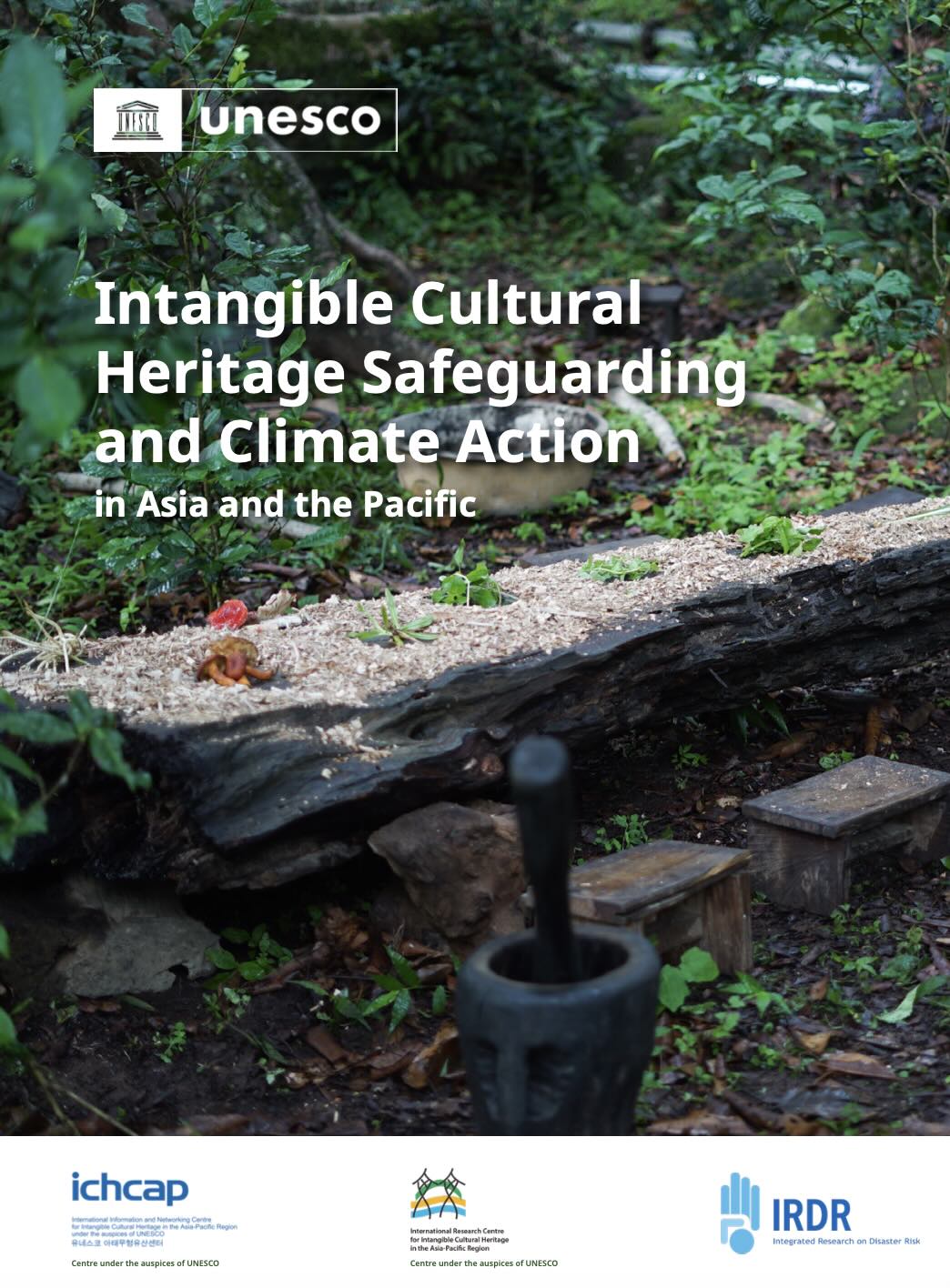Intangible cultural heritage safeguarding and climate action in Asia and the Pacific

This UNESCO publication features examples of ongoing efforts to adapt rights-based and people centred approach to climate action for living heritage, while demonstrating the interconnectedness between cultural heritage and environmental sustainability.
Cultural practices strengthen a sense of identity among local communities and foster sustainable development. Intangible cultural heritage also plays a vital role in achieving robust responses to climate change.
In the face of unpredictable climate patterns, communities across the culturally diverse Asia-Pacific region are increasingly adopting response and mitigation approaches that are rooted in intangible heritage. Traditional practices are receiving renewed interest and being integrated into innovative strategies. This also contributes to the continuity of local culture and sense of belonging, as well as intergenerational transmission. Indigenous knowledge is also widely recognised as a strong contributor to fostering climate resilience in the region.
The publication provides an example of how the proposed areas of intervention of the UNESCO’s Guidance note on climate action for living heritage (2024) can be taken forward. It invites a wider conversation on ways to safeguard living heritage and to enhance its climate change adaptation, mitigation and measures for safeguarding living heritage in the climate emergency.
